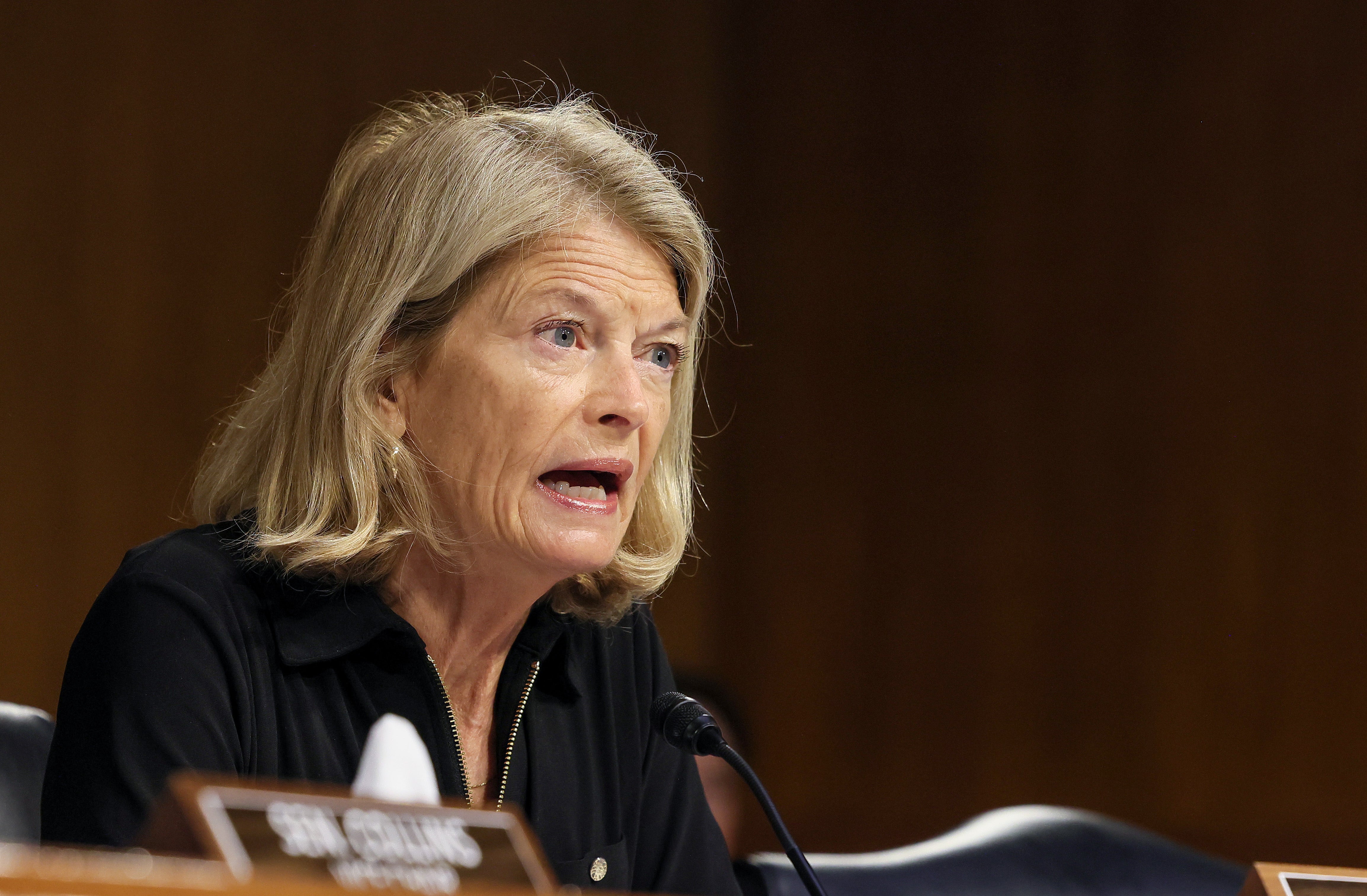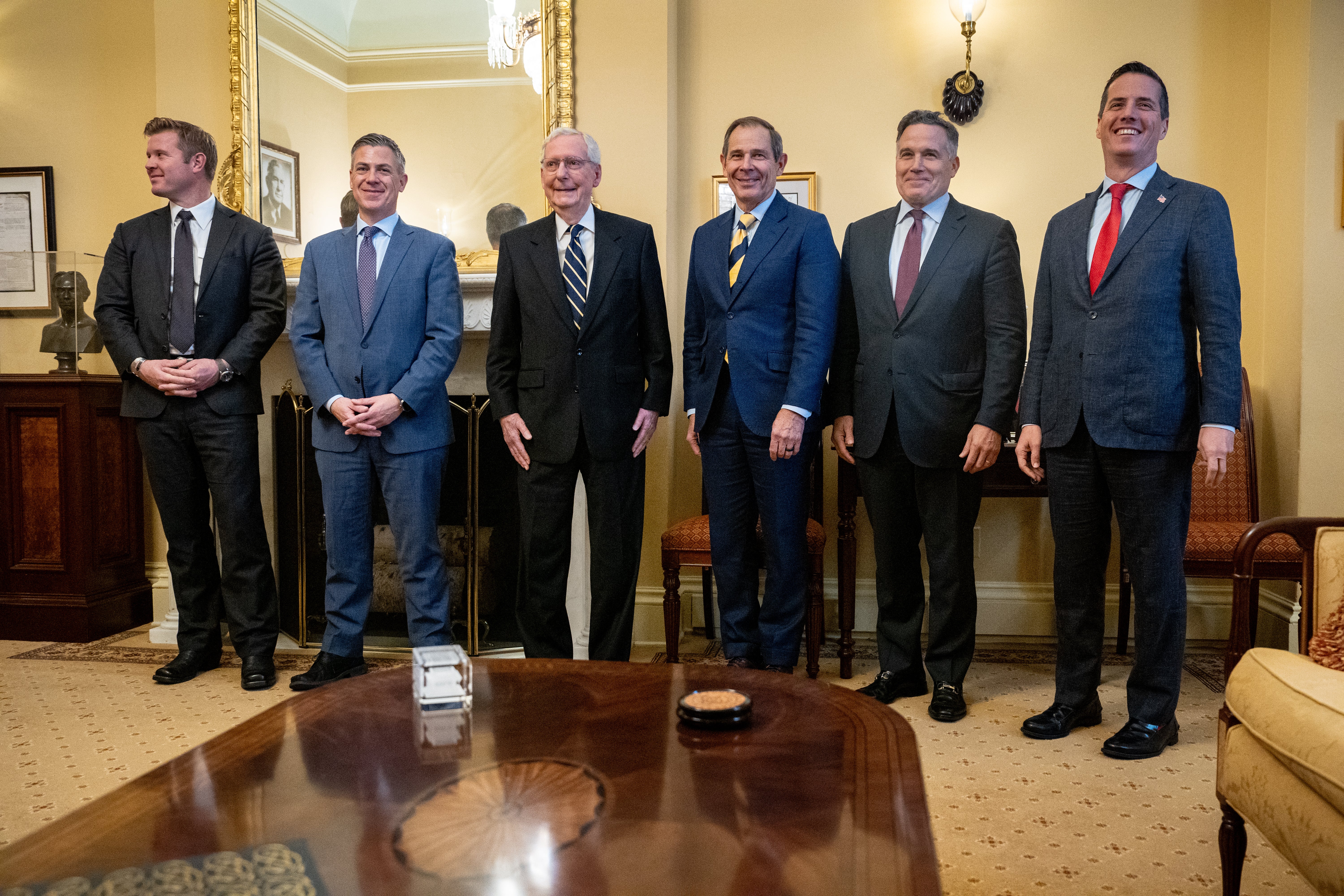The five Republican senators who could thwart Trump’s agenda and nominees
Trump’s nominees will now need to be confirmed by the Senate, which Republicans control with a 53-seat majority
Your support helps us to tell the story
From reproductive rights to climate change to Big Tech, The Independent is on the ground when the story is developing. Whether it's investigating the financials of Elon Musk's pro-Trump PAC or producing our latest documentary, 'The A Word', which shines a light on the American women fighting for reproductive rights, we know how important it is to parse out the facts from the messaging.
At such a critical moment in US history, we need reporters on the ground. Your donation allows us to keep sending journalists to speak to both sides of the story.
The Independent is trusted by Americans across the entire political spectrum. And unlike many other quality news outlets, we choose not to lock Americans out of our reporting and analysis with paywalls. We believe quality journalism should be available to everyone, paid for by those who can afford it.
Your support makes all the difference.President-elect Donald Trump has nearly completed his nominations for Cabinet and key government roles in his next administration — but the battle is hardly over.
On Tuesday evening, he nominated Jay Bhattacharya, a physician who during the first year of the Covid-19 pandemic argued against lockdown measures, to be director of the National Institutes of Health. This comes after Trump nominated Marty Makary, who once said that only 20 percent of Americans needed to receive a Covid-19 vaccine for the US to reach “herd immunity,” to lead the Food and Drug Administration. Trump also nominated Glen Weldon, a former Florida congressman who had promoted the debunked theory that a mercury-based preservative used in vaccines causes autism, to lead the Centers for Disease Control and Prevention.
But Trump’s nominees will now need to be confirmed by the Senate, which Republicans control with a 53-seat majority. Trump got a reality check last week when Matt Gaetz, the embattled former Republican congressman, pulled his nomination for attorney general after it became clear he would face Senate opposition.
During his presidency, Joe Biden had to grapple with Joe Manchin and Kyrsten Sinema, the conservative Democrats-turned-independents, when he wanted to pass anything. Now Trump may face his own bloc of opposition within his party. Here are the Republican senators who could be a roadblock to Trump’s agenda.

Susan Collins — Maine
Democrats may loathe the Maine Republican for frequently insisting during Trump’s first term that she was “very concerned” about his actions, and for voting to confirm Brett Kavanaugh — whom she later claimed “misled” her on his desire to overturn Roe v. Wade — to the Supreme Court in 2018. But Collins has occasionally shown opposition to Trump. She opposed the nomination of Amy Coney Barrett to the Supreme Court in 2020 and voted to convict the president-elect after his actions on January 6. This time around, she clearly had reservations about Gaetz becoming attorney general. As chairwoman of the powerful Senate Appropriations Committee, she works with Democrats to write the budget. Collins hails from a state with ranked-choice voting so she does not have to fear a challenge from the right.

Lisa Murkowski — Alaska
No Republican senator seems more annoyed at having to answer questions about Trump and his right-wing shenanigans than Murkowski. Like Collins, she voted to convict Trump in 2021, supported Nikki Haley for the Republican nomination and opposed the Republican repeal of Obamacare in 2017. Last week, she told The Independent she wanted to know more about Robert F Kennedy’s stance on vaccines and autism. Murkowski is not up for re-election until 2028, and Alaska recently voted to keep ranked-choice voting, which insulates her from a MAGA primary challenge.

John Curtis — Utah
Curtis will succeed Mitt Romney and in many ways, is a natural successor to him. Like Romney, Curtis is a member of the Church of Jesus Christ of Latter-day Saints in Utah, a group that’s historically expressed skepticism of Trump, despite the fact they remain rock-ribbed Republicans. As a congressman, Curtis founded the Conservative Climate Caucus, and would occasionally vote with Democrats, such as when he voted for the Respect for Marriage Act. But he’s often voted in step with the rest of his party, even opposing the bipartisan infrastructure bill that Romney brokered.
Mitch McConnell — Kentucky
Now this might surprise some people. The longtime Senate majority leader is in many ways responsible for Trump’s two presidencies, from blocking Merrick Garland’s nomination to the Supreme Court in 2016 to voting to acquit Trump after January 6. But now that he will no longer lead the Republican conference, he is more free to strike out on his own. In addition to his criticism of some of Trump’s nominees, he will be chairman of the influential Senate Rules Committee and lead the Appropriations Subcommittee for defense spending. McConnell will likely use the latter perch to defend what he wants to be his legacy item: supporting Ukraine in its fight against Vladimir Putin. At 82, he is unlikely to run again.
Thom Tillis-North Carolina
Of all the senators on this list, Tillis is the most endandgered. He hails from the swingiest of swing states and has always survived in tight races. During the Biden presidency, he brokered deals on everything from codifying protections for same-sex and interacially married couples to infrastructure to guns. He seemed less than enthused about voting to confirm Matt Gaetz, saying his nomination would lead to “a popcorn-eating confirmation.” That’s made him a target for some on the MAGA right, and he will likely face a primary challenger when he is up for re-election in 2026. He could easily be in a tough race against a strong Democratic challenger such as outgoing Governor Roy Cooper.
This article was amended on 28 November 2024. It originally stated that Marty Makary is Donald Trump’s nominee for surgeon general, but that was incorrect. He is Trump’s nominee to lead the Food and Drug Administration.
Join our commenting forum
Join thought-provoking conversations, follow other Independent readers and see their replies
Comments